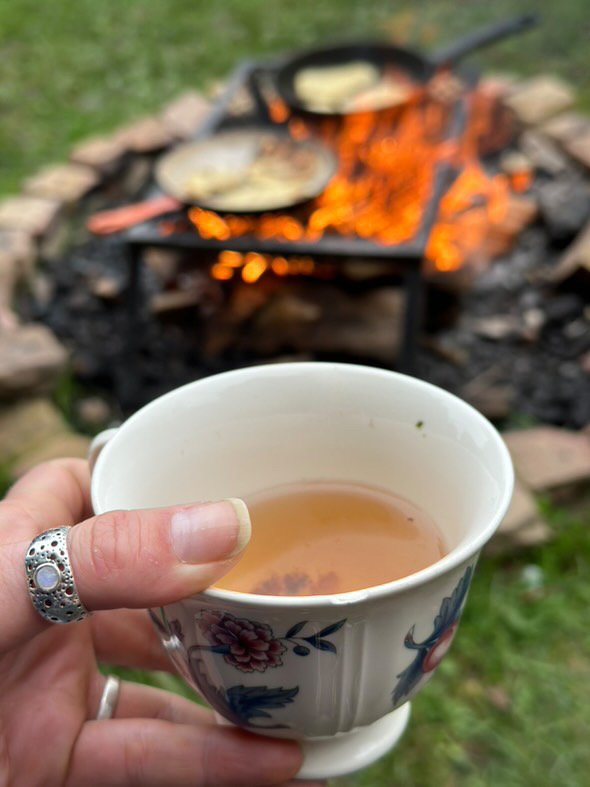
An Introduction to Kitchen Therapy
Brief Bio
Charlotte trained as a psychodynamic therapist in 2009 and has been accredited since 2015. Initial training in Anthropology and social philosophy provides the theoretical backbone for her work, inspired by Jungian depth-psychology. People, their stories and communities have been an abiding fascination, leading to further training in Systemic Family Therapy. Her time as a secondary school teacher culminated in being head of Drama at a boarding school for neurodiverse students. Here she developed multi-sensory, adaptive and flexible approaches to working with life’s variety of people, situations and potential. Kitchen Therapy has been in development since her 1970s childhood, split between her grandmother’s home cooking and her working mother’s boil in the bag TV dinners. She integrates therapy with cooking to enhance personal and social wellbeing in individuals, families and groups, from her garden studio, outdoors when she can or in space large enough for a kitchen, people and laughter.
You can find out more from www.therapykitchen.co.uk or www.kitchensessions.org her chapter in Attachment Relationships and Food (2022) Linda Cundy (ed) or her own book ‘Kitchen Therapy: How to Become a Conscious Cook (2024)
An introduction to Kitchen Therapy
I began training as a psychodynamic therapist in September 2009. In the same term I started teaching household cooking in the local community. In fact, City College who employed me, supported my training, both financially and professionally. I felt a sense of arrival, not least as Brighton University had just completed The Checkland Building – nestling into the Sussex Downs this environmentally conscious structure helped me feel at home, at peace and ready for adventure.
The potential of talking therapy and cookery to feed into each other quickly became apparent – these resonant ingredients were stirring into a recipe for life. My mind full of lessons about human development, I began to realise the deeper meaning of my first cookery course, I’d unwittingly titled ‘Learn to Love Cooking’ speaking to the nutrition of love. How we cook, is how we live.
As I watched a student in a community class give her share of food away, seemingly nervous of offending the wooden spoon or saucepan, I saw that how she cooked was how she lived – on the edges. She told me how she hated cooking, was fearful of making mistakes, poisoning people even, reflecting an inner process of anxious attachment. Our quiet exchange around these observations, led to Kitchen Therapy: a way of using food, cooking and eating to explore clients’ inner worlds, support mental health and enhance their relationships – whilst making dinner. Magic.
I furthered my psychological understanding of family and community dynamics through a Foundation in Systemic Family Therapy. During this course I remembered the significance of a tea party I had held as a small child, which was in fact Kitchen Therapy’s first event.
Nana, my great grandmother (1900-1884) and I loved to play cards, all day, every day. I learned how to play the hand your dealt, for better or worse; how to count and find patterns; about her life, how to manage loss, disappointment, about love, all at this card table. A woman who wouldn’t get the vote until she was in her 28th year, who lost beloved brothers in the First World War, who divorced her gambling husband and brought up three girls alone. My teacher. My best friend. My Nana. When she wanted to leave our card table to have time with her knitting circle, I was bereft. A brain wave – I asked my grandmother, her daughter, if we could hold a tea party for Nana’s friends. ‘Yes’ she said. A truly remarkable cook, my gorgeous grandma and I made a party fit for a pack of Queens.
Personalised invites, lace tablecloths, home grown cucumber sandwiches, jam tarts and Victoria sponge came together in a delightful feast. I found myself very happy centre stage as their needles and chatter clicked alongside delicious plates of tea and cake. I had found a solution to losing Nana’s attention and accessed the whole group through making food and fun, in one memorable event. I have since called this transformation of problems to solutions, ‘attention alchemy’. We become the change we seek. Meeting our needs with action within our tribe.
I have since been running one to one, couple and family cooking sessions, either from my small garden studio on the outskirts of Brighton, or in larger spaces for larger groups.
Kitchen Therapy works for anyone looking to explore personal issues in a creative, practical and sensory way.
- In a case of severe anxiety or OCD we look at how mess and mistakes are essential to to life.
- In depression, we experience moments of sharing, across the inner world divides, threads of vitality and connection.
- With autistic spectrum clients, there is a balancing of left and right brain functions, forging empathic pathways as we relate and fall a little in love with each dish.
- For ADHD folk we have an attention-grabbing activity, a complete story with layered rewards.
- For addicts we explore healthy dopamine pathways through earned rewards and relational motivation.
- We develop creativity and intuition with a playful approach to meal making, which I like to call mudpie magic. Enhancing agency, personal potential and inner resource.
- For therapists and their clients alike, we explore deep and meaningful, edible self-care or self-parenting. Orientating attention on how rather than what we feed ourselves.
Kitchen Therapy is potent work on both a personal and professional level. It speaks to the very essence of who I am and what I share with you: ‘we are what we eat’. It works from the gut brain, the digestive system we have in common with every other living thing. Food can be a place of mutuality, a platform from which to explore who and where we are on the human stage. In the various contexts I find myself in as a kitchen therapist, my role as witness, support or interpreter is adaptive to a wide range of needs.
Kitchen Therapy is also about reconnecting with Nature. Workshops during the second lockdown took participants out of the city to a community farm, to support families during Covid-19. We needed to work outside, providing ways for isolated families to safely connect. We picked greens and pumpkins, chopped, cooked and ate outdoors – being messy, muddy and chilly, as Nature intended. The day felt alive as if woken from aeons of slumber.
The sense of true connection with food, fire and folk on the farm, was exhilarating. Foraging, harvesting, gathering our dinner, cooking on an open fire, in the open air with the other creatures, brings us back in touch with Mother Earth – rewidling the human spirit.
In Catching Fire: How Cooking Made Us Human, Richard Wrangham convincingly writes that, ‘Cooking… changed our bodies, our brains, our use of time and our social lives. It made us into consumers of external energy and thereby created an organism with a new relationship to nature, dependent on fuel’. Psychologically, it is our first taste of alchemy, time and story, as we move through the beginning, middle and end in the action of meal making. Collecting the characters – the ingredients of the day, seeing how they get on with each other and enjoying the resolution around the table, sharing our ‘daily bread’, together.
Time spent around a fire, candlelight or hob, playfully enjoying the movement from hunger to satisfaction, creates moments of mutuality and connection that are as magic as they are mundane.
Charlotte Hastings for The Cake Foundation June 25, celebrating the 1st birthday of my book!
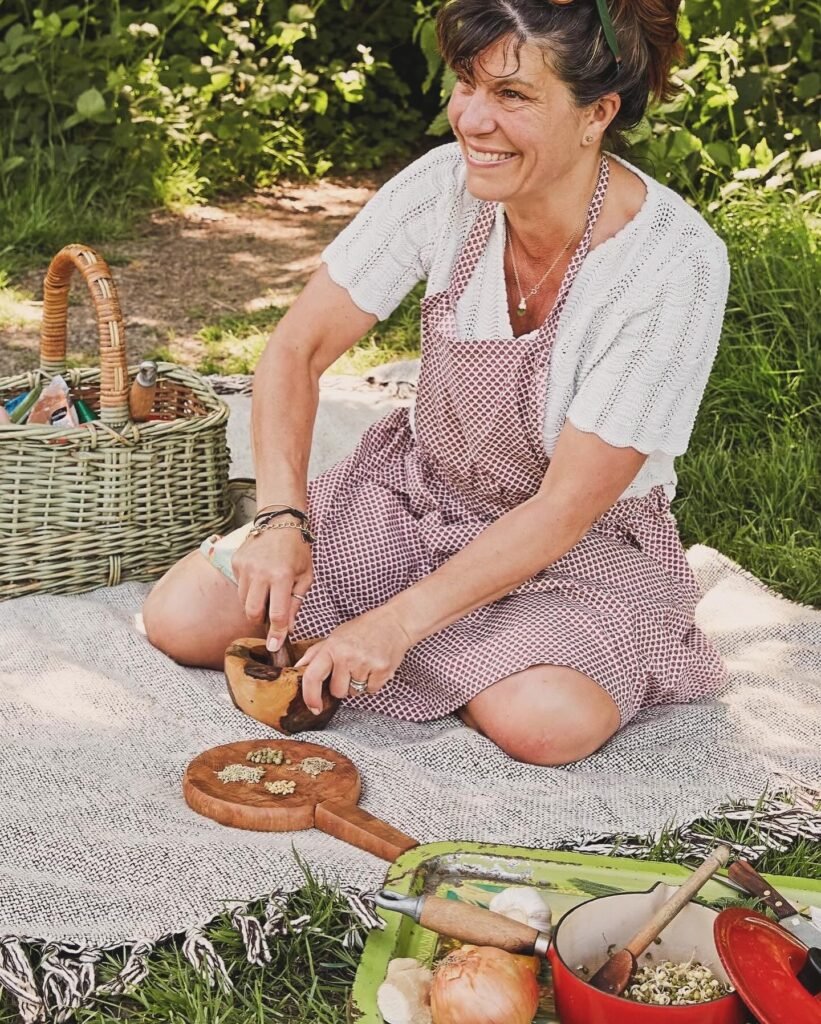
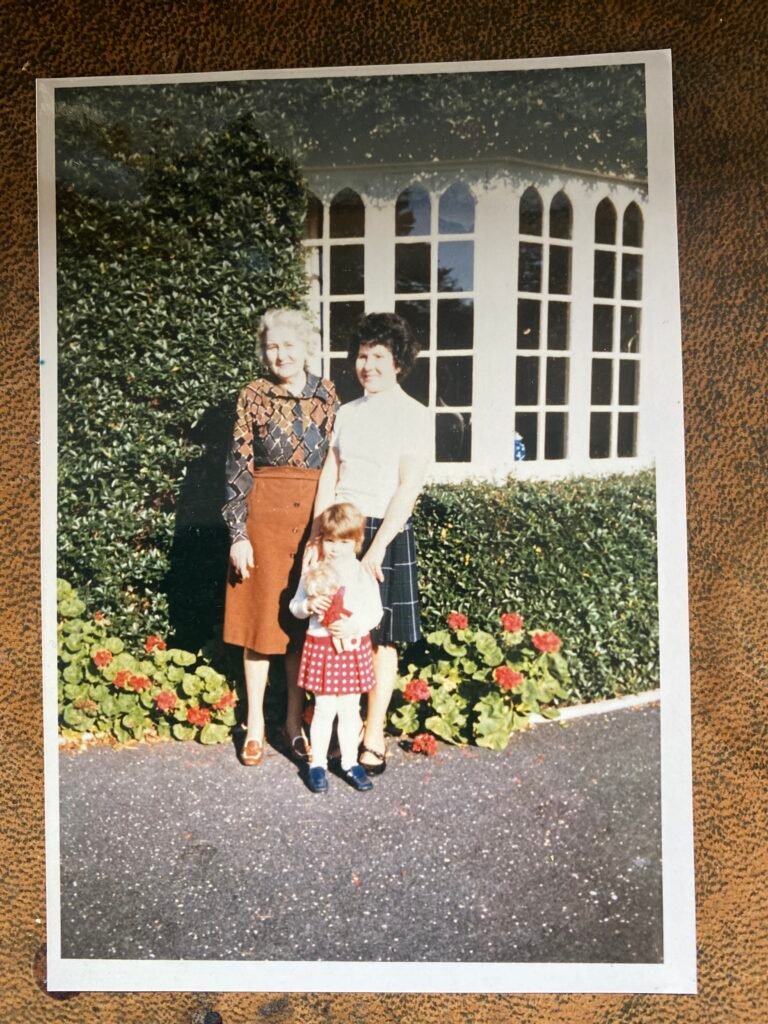


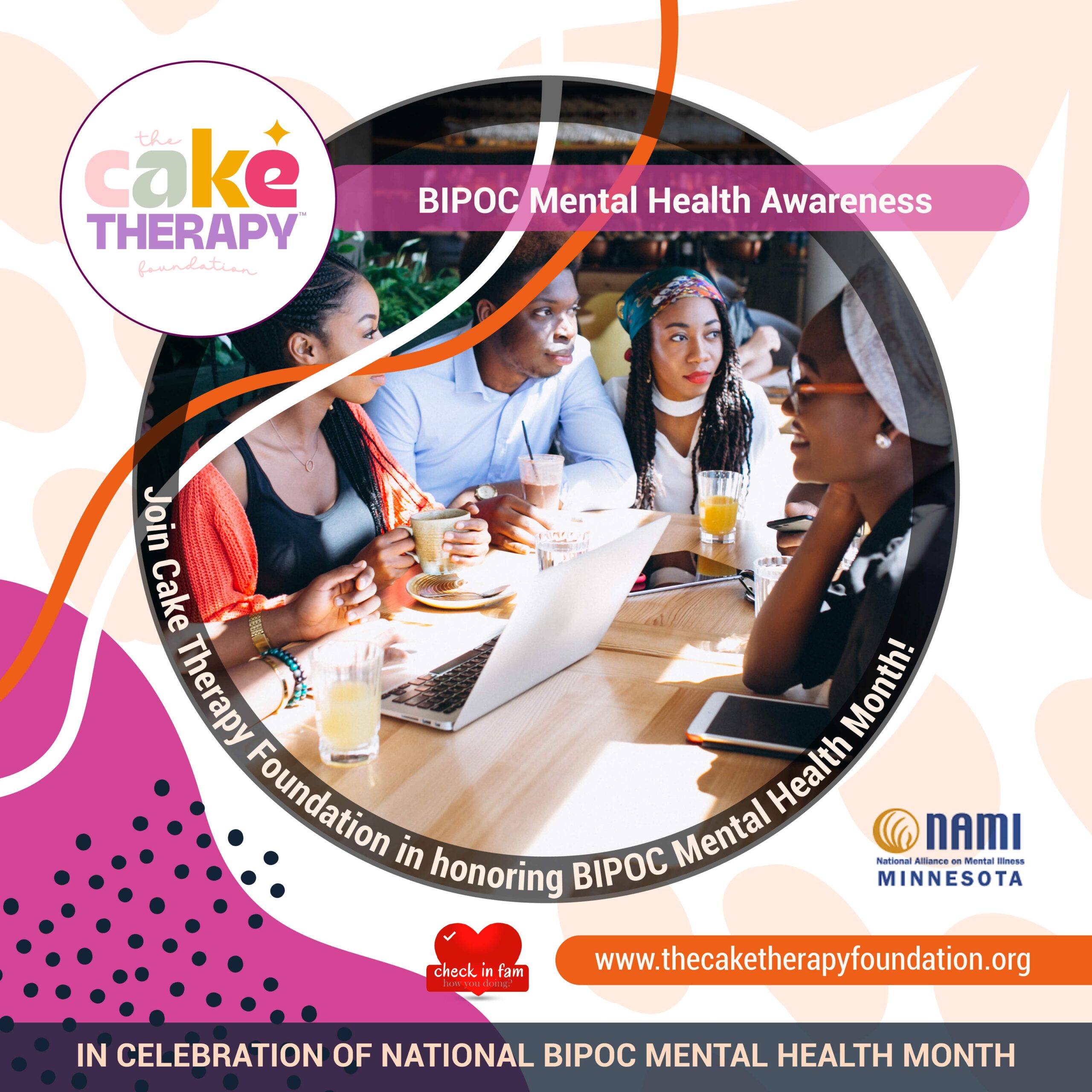


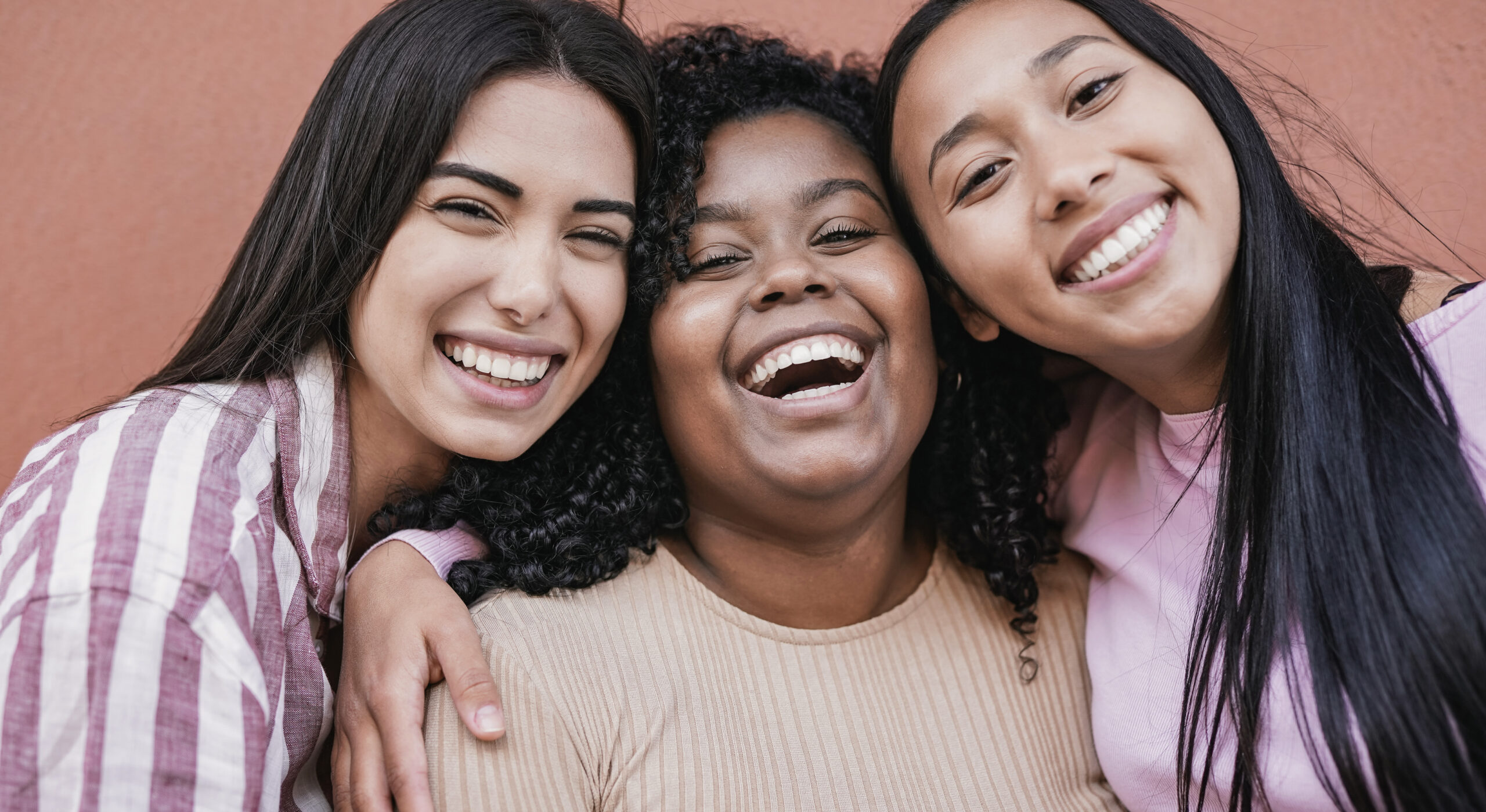
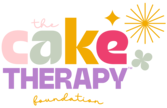
Leave a comment